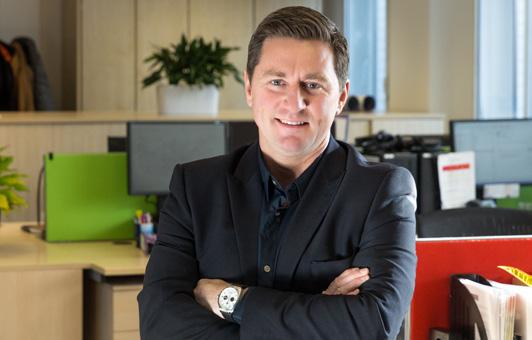
2 minute read
A NEW YEAR, A NEW DECADE AND A NEW STRATEGIC PLAN
MARTIN’S COLUMN Words from Martin Boyle, CEO, IAPCO
As I reflect on the past year, I think it is important to recognise a few significant occurrences. It will be remembered as the year that the climate crisis came to the forefront of all of our minds, spread through mass protests and civic movements around the globe and by one inspired young Swedish woman who pulled no punches when challenging industry and global decision-makers to take responsibility and act. Political issues from Brexit to US Presidential impeachment hearings continued to make the headlines causing more opinion divide on local levels as well as on the global stage.
However, 2019 was also a year of greatness and celebration.
Indonesia raised the minimum age for brides to end child marriage. Taiwan became the first place in Asia to pass a same-sex marriage legislation. We saw the first all-female space walk outside the International Space Station and US Congress welcomed the first Muslim woman as well as the youngest woman ever elected. And a tortoise believed to be extinct was found after 100 years – that made Ticky extremely happy!
In September of 2019, IAPCO HQ and Council met in Singapore to map out their five year strategic business plan.
4 | March 2020 Our goal was to develop IAPCO’s strategy and plan for international reach through increased engagement and support in key geographical regions such as LATAM and APAC, to open our quality education to a more inclusive international audience whilst committing to our value proposition and our environmental and organisational sustainability. What should an organisation such as IAPCO consider when drafting a strategic business plan and what value does it serve?
Kaplan and Beinhocker (2003) undertook an in-depth analysis of the strategic planning processes of thirty international organisations. They concluded that the true value of strategic planning was to make sure that key decision makers have a solid understanding of the key issues, agree on important assumptions and share a common understanding of the facts surrounding the business.
The value that a strategic plan can bring to an organisation can be realised on several levels. The act of even drafting a strategic plan brings creative thinking to the table. It provides a road map for longer term operational issues and guidance as to where the organisation wants to be and how, ideally, it wants to get there. It is essential to create a succinct and detailed strategic plan that provides both context and actionable content with milestones and key performance indicators, all linked to the vision and mission of the organisation. Input and feedback from team members within all levels of the organisation is vital to any strategic plan being accepted and, perhaps more importantly, to it being delivered.
A plan should be divided into key subject matters or activity-specific activities that tie together so that they are succinct and easy to follow for all involved within the organisation. It can actually serve as a support tool to improve decision-making as employees, team members and leaders ask; “does xyz fit with our objectives?”.
The only thing certain about the future is that it is uncertain. Environments, economic conditions and competitive pressures will inevitably continue to change and evolve over time, all of which will impact on any well thought out strategic plan. It is important that any organisation’s plan has the built-in flexibility enabling it to continually adjust and evolve with positive outcomes through its timeline.










